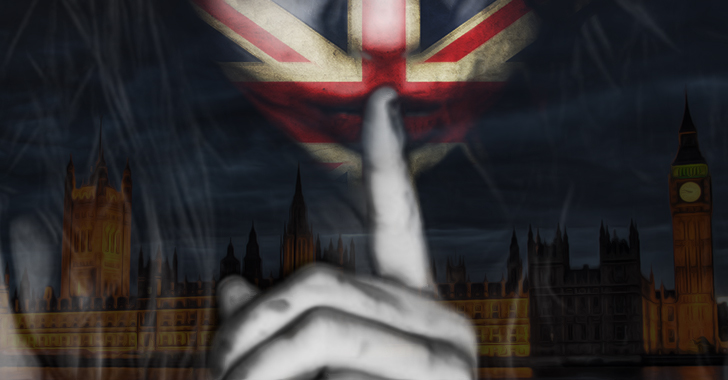
By Carey Wedler
The U.K. government is eager to expand already extensive spying powers to ban iMessage, WhatsApp, and Snapchat because the government cannot bypass their encryption features. The proposed ban was added to a revived version of a previously repealed British surveillance bill.
Cameron first indicated his advocacy of the ban following the Charlie Hebdo attack in Paris in January, justifying it by asking—without a hint of embarrassment—“In our country, do we want to allow a means of communication between people which […] we cannot read?” He quickly answered his own question: “‘No, we must not.’”
Cameron’s suggestion was part of a larger push to revive the sweeping Communications Data Bill, which detractors commonly refer to as the “Snooper’s Charter.”
By May, the government had announced it would introduce an investigatory powers bill that extended the powers granted in the Communications Data Bill and strengthened the government’s ability to engage in bulk data collection. The Home Office claimed it would “better equip law enforcement and intelligence agencies to meet their key operational requirements” by allowing them to monitor communications more invasively.
Now, the bill is pushing forward. It includes a provision to ban WhatsApp, iMessage, and Snapchat “to stop people from sending any form of encrypted messages.” The bill also requires internet companies to keep full records of all communications on their platforms. This includes Facebook and Google, which would be required to hand over whatever information the government wants, when it wants it.
In arguing in favor of the expanded powers, Cameron said, “We have always been able, on the authority of the Home Secretary, to sign a warrant and intercept a phone call, a mobile phone call or other media communications.” According to Big Brother Watch, British police file a request for communications data every two minutes. Their requests are granted 96% of the time by the Home Office, a rate almost as high as that of American “rubber stamp” FISA courts. Like Cameron, American officials have criticized encryption as a danger to national security.
By banning all forms of communication exempt from government surveillance, the U.K. government is straddling a dangerous line between “national security,” as it claims to bolster, and the basic privacy rights of its citizens. Many would argue it has long since crossed that line, as intensive surveillance measures have been in place for years. Cameron pontificated this week that “…the question we must ask ourselves is whether, as technology develops, we are content to leave a safe space – a new means of communication – for terrorists to communicate with each other.”
 Not everyone in the U.K. agrees with the prime minister’s privacy-versus-security dichotomy. “We take no issue with the use of intrusive surveillance powers per se – targeted surveillance can play an important part in preventing and detecting serious crime,” said Liberty, a human rights and civil liberties advocacy group in the U.K. “But the current regime just doesn’t provide sufficient safeguards to ensure that such surveillance is conducted lawfully, and in a necessary and proportionate way.”
Not everyone in the U.K. agrees with the prime minister’s privacy-versus-security dichotomy. “We take no issue with the use of intrusive surveillance powers per se – targeted surveillance can play an important part in preventing and detecting serious crime,” said Liberty, a human rights and civil liberties advocacy group in the U.K. “But the current regime just doesn’t provide sufficient safeguards to ensure that such surveillance is conducted lawfully, and in a necessary and proportionate way.”
Former Deputy Prime Minister Nick Clegg, who helped to block the previous version of the Communications Data Bill when he was in office, echoed a similar sentiment about the impending new policy.
“It’s not harmless. It would be a new and dramatic shift in the relationship between the state and the individual,” he said.
“People who blithely say they are happy for their communications to be open to scrutiny because they have ‘nothing to hide’ have failed to grasp something fundamental about open democratic societies: We do not make ourselves safer by making ourselves less free.”
Conservatives in Parliament are expected to pass the bill (previously killed by liberal Democrats in the previous administration) with enforcement as early as 2016, even as computing experts warn the policies may enable the very terrorists they are intended to thwart.
Carey Wedler writes for TheAntiMedia.org, where this article first appeared. Tune in! The Anti-Media radio show airs Monday through Friday @ 11pm Eastern/8pm Pacific. Help us fix our typos: edits@theantimedia.org.

This is happening in every Western country. I think it is time for us to be very afraid of our own leaders. It is with open, but unseeing, eyes that we are allowing, in piecemeal fashion, the creeping implementation of legislation for our total enslavement to a corporate, and financial world-government agenda.
Without a free and honest media most of us remain divided and oblivious to the creeping usurpation of our rights as free individuals.
Only a free web stands a chance of enlightening and uniting us. Time, it would appear, is running short as indicated by the recent speeding up of global and domestic events.
Silently….totalitarian police state crept in….the people were asleep….history repeatin itself..
In a genuine democracy, the private people is opaque for the state and the state has to be transparent. In our western so-called democracies, it is the opposite, the state is opaque (state secrets, classified documents) and private people are, so the whishes of the governments, to be transparent.
Too often the equation elections=democracy is assumed, but democracy is more than elections.
The western democracies in-name-only are real police state, elective dictatorships or oligarchies.